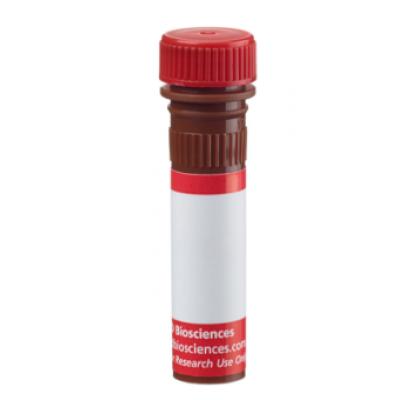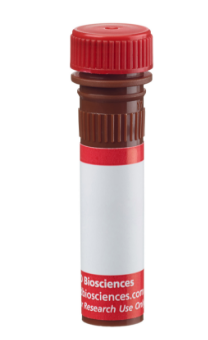Alexa Fluor® 647 Mouse Anti-Human CD63 Clone H5C6 (RUO)
Brand
BD Pharmingen™
Alternative Name
LAMP-3; ME491; MLA-1; Granulophysin; Ptgr40; NGA; gp55
Vol. Per Test
5 µl
Isotype
Mouse BALB/c IgG1, κ
Reactivity
Human (QC Testing)
Application
Flow cytometry (Routinely Tested)
Immunogen
Human Splenic Adherent Cells
Workshop No.
V P036
Storage Buffer
Aqueous buffered solution containing BSA and ≤0.09% sodium azide.
DESCRIPTION
The H5C6 monoclonal antibody reacts with CD63. CD63 is a 53 kDa, type III lysosomal glycoprotein, expressed on activated platelets, monocytes and macrophages. This molecule is also referred to in the literature as LIMP, gp55, melanoma-associated antigen ME491, Pltgp40, LAMP-3 and is a member of the tetraspan transmembrane 4 superfamily (TM4SF). It is widely expressed on surface and in the cytoplasm of various hematopoietic (monocytes, macrophages) and non-hematopoietic cells (endothelium, fibroblasts, osteoclasts, smooth muscle).
Alexa Fluor® 647 conjugates are highly photostable and remain fluorescent over a broad pH range. The excitation and emission maxima are nearly identical to those of APC. However, APC tends to be brighter while Alexa Fluor® 647 is more optimal for intracellular applications. This fluorochrome exhibits uncommon photostability, making it an ideal choice for use in fluorescence microscopy. Due to nearly identical excitation and emission properties but different spillover characteristics, APC and Alexa Fluor® 647 cannot be used simultaneously.

 010-64814275
010-64814275
 當前位置:
當前位置:




 010-64814275
010-64814275
 010-64814275
010-64814275
 2850669802
2850669802